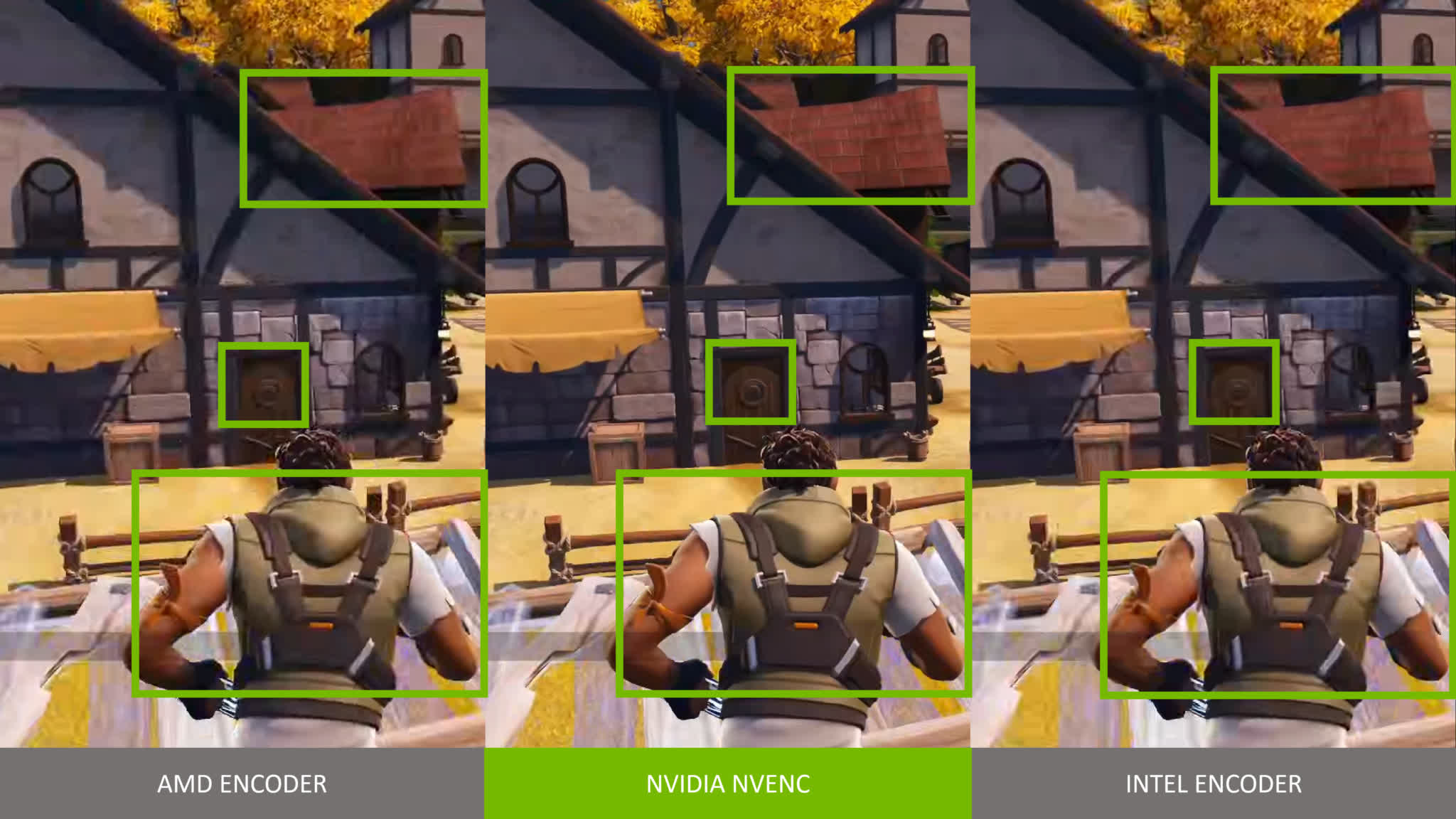In context: It's no secret Nvidia's NVENC media engine in GeForce GPUs has been the preferred option for streamers for years, but AMD and Intel have recently done a decent job of catching up. That said, Team Green claims its RTX 40 series GPUs are still better than AMD and Intel equivalents when it comes to AV1 hardware encoding.
Recently, AMD has been extolling the VRAM capacity of its Radeon RX 6000 and RX 7000 series graphics cards, while criticizing Nvidia offerings like the RTX 4070 and RTX 4070 Ti which offer less than comparable Radeon models even though they have a higher price tag.
This happened just as Nvidia was getting ready to launch one of its Ada offerings, so it was only a matter of time before Team Green would fire back at AMD. In a new blog detailing the launch of OBS Studio 29.1, the company explains how GeForce RTX 40 series GPUs are more capable than both AMD and Intel alternatives when it comes to AV1 encoding.
The new version of OBS comes hot on the heels of YouTube adding support for AV1 live streaming over Enhanced RTMP, which is meant to improve video quality while also reducing bandwidth requirements. AV1 is much more computationally intensive than the more commonly used H.264 (AVC) codec, but now there are several integrated and dedicated GPUs out there that come with partial or full support for decoding it in hardware, so it's no surprise companies are using every occasion to promote it over the older format.

Nvidia says the AV1 encoder in its RTX 40 series GPUs is capable of real-time AV1 hardware encoding, allowing you to stream in 4K at 60 frames per second. This is anywhere between 30 to 50 percent more efficient than live streaming using H.264, meaning you'll only need around 10 Mbps of upload bandwidth for a 4K60 stream.
Team Green claims you can also get much better video quality using the NVENC unit inside RTX 40 series as opposed to competitors' hardware, but we're only getting a screenshot for comparison where Intel and AMD encodes do look a little underwhelming. The company says it tested a 4K60 AV1 stream using a GeForce RTX 4080, a Radeon RX 7900 XT, and an Intel Arc 770 with the OBS Studio default settings at 12 Mbps.
Of course, independent reviewers don't always arrive at the same conclusions in their testing of these technologies. YouTuber EposVox recently looked at the new OBS Studio feature while it was in beta and found that media engines in the newest Nvidia, AMD, and Intel GPUs are quite similar when it comes to AV1 stream quality. The only issue is that RX 7000 series GPUs struggle with 4K60 streaming, but that will no doubt be corrected through software updates.
It's also worth noting Nvidia's GeForce software stack has areas where it is sorely lacking in comparison to AMDs. The Nvidia Control Panel is arguably a relic at this point, GeForce Experience cannot be used without an Nvidia account, and the Nvidia ShadowPlay feature has seen much less love than AMD's ReLive in recent years.
If anything, we'd love to see AMD work on something similar to Nvidia's RTX Remix for the game modding community. It could also bring Windows support for ROCm (AMD's alternative to Nvidia CUDA) on consumer Radeon GPUs.
The latter will actually happen sometime in the coming months, but the former will likely remain a pipe dream. Meanwhile, Intel's Arc Control software has generally been well-received by gamers and offers a pleasant user experience, save for some small quirks.
